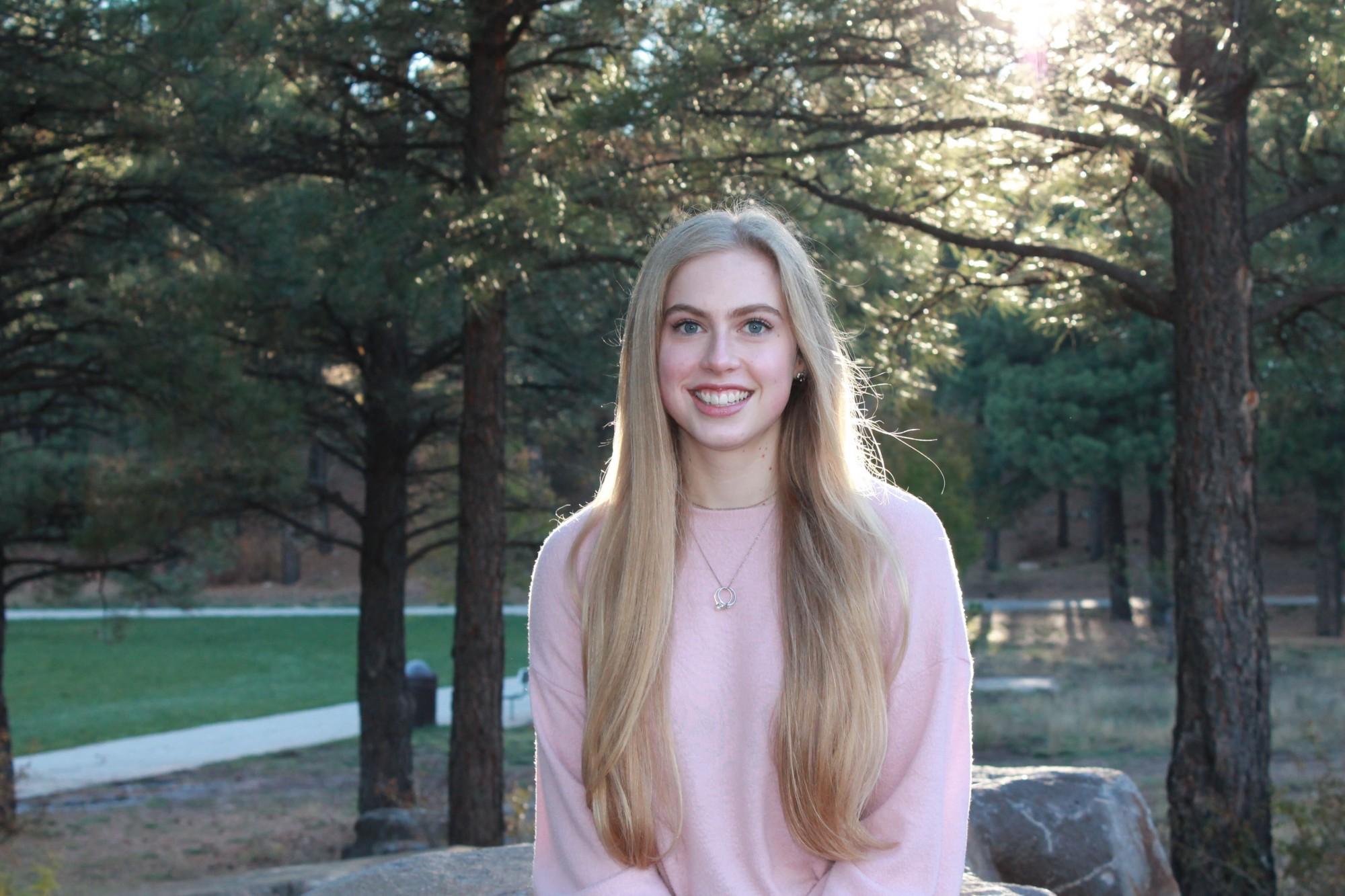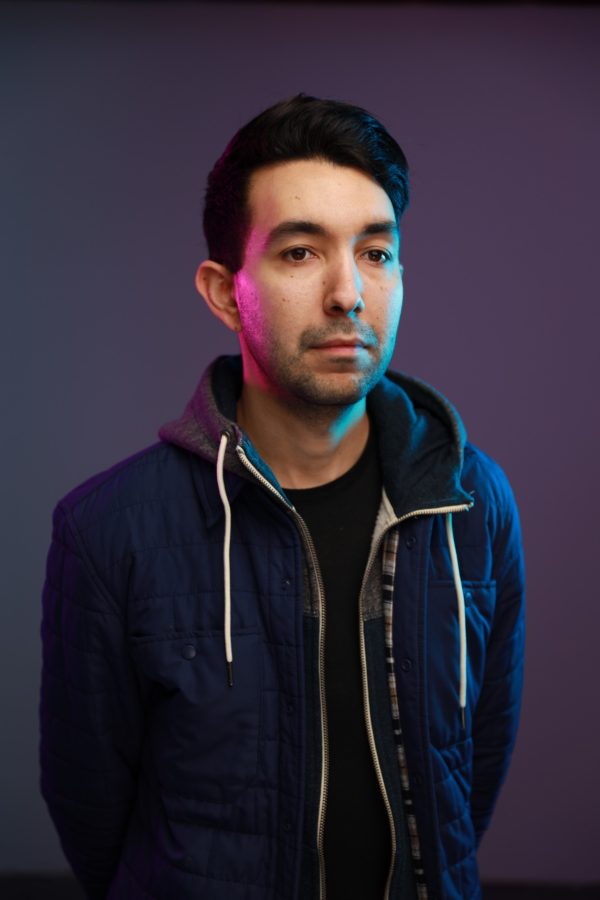On a mid-November afternoon, I had the chance to sit down with Julian R. Vaca, author of the novel, “The Memory Index.” Vaca had reached out to me via Twitter about reviewing his book, a young adult dystopian novel that focuses heavily on memory and what it means to us. The novel was a great read — especially if you’re a fan of any and all things 1980s — but I had an even better time chatting with Vaca himself about his book, career advice and the nature of authenticity.
Vaca may have burst onto the publishing scene with this debut, but he has been in the game for a long time and knows how to talk about a good story as much as he knows how to write one. “The Memory Index” follows two young teenagers in an alternate 1987 where a perplexing disease has stolen the memories of almost the entire population, leaving most to rely on artificial recall to access histories that should rightfully be theirs.
This book is one that is close to Vaca’s heart. “I’ve always been fascinated with the intersection of identity and memories and memory keeping and memory making,” he said. “The book kind of goes into heady, philosophical questions of identity.” Such philosophical questions (like does memory make us who we are — a big order for a dystopian novel to fill) imbue the novel with literary meaning but also with a sprinkling of personal flavor.
Vaca talks about “The Memory Index” like it is a beloved family heirloom passed down from generation to generation — and for him, it likely is a culmination of many different pasts and presents.
“For me, as a first-generation Mexican-American,” he said, “I have a really interesting story in that I didn’t learn Spanish growing up. In a lot of ways, my mother’s memories, my father’s memories, their memory keeping of their own stories and their own childhoods really helped bridge the gap between my present [and my past].”
A nice touch in the novel, Vaca told me, is that one of the protagonists, the determined and whip-smart Freya, shares her last name with Vaca’s mother. Izquierdo was his mother’s maiden name, and so having a piece of her in this story is something that makes his words glow with pride.
However, Vaca did not always have one of his protagonists in his dual POV debut be Mexican-American, an identity he also shares. In the first iteration of “The Memory Index,” Freya was actually a 17-year-old Black girl. This choice, Vaca noted, was to try and provide a bit of representation for his niece and nephews, who are mixed race. Yet after his editor flagged a few parts of the manuscript and sent it over to a sensitivity reader, Vaca realized that Freya’s story needed to be more authentic to him.
“When you tackle something like that, writing in a voice like a 17-year-old Black girl, you’re going to be called to task on the authenticity of the voice,” Vaca said. “So that was a big realization for me to make the decision to pivot and have Freya be a first-generation Mexican-American.”
The subject of authenticity in fiction writing, especially in young adult fiction writing, has been a hot button in the publishing world in the last few years. With the rise and fall of the #OwnVoices hashtag that existed on social media for a brief but impactful moment, the search for diversity and representation in children’s and young adult books has exploded.
While there is some disagreement about what makes a book have “good representation” — a term so vague that a Google search will yield thousands of articles with different takes on the subject — Vaca stands on the side of what the #OwnVoices movement would have affectionately called “authentic representation.”
He elaborated on the choice to change Freya’s race, saying, “I had this look in the mirror moment where I was like, ‘what am I doing?’ I’m forcing something here.” Even over Zoom, I could tell how passionate about this subject he was — his voice, a bit crackly due to an unsteady WiFi connection, rose audibly and cast a resounding echo around my room.
“I have an opportunity to speak to my own heritage and my own story from an authentic place. This is an opportunity for me to actually speak to my story and my core, and so that was a huge light bulb moment for me,” Vaca said.
In a time ripe with confusing notions of what is and is not okay to write about in a fictional universe, Vaca’s humility both surprised and delighted me. It takes a brave person to admit their wrongdoings, and an even braver person to try to make it right. Vaca isn’t just focused on writing authentic stories in his books going forward, he is also determined to be a guiding light for young readers — many of whom may be struggling to find stories that represent them and the lives they do (or want to) lead.
When I asked him about his thoughts on writing fiction that offers guidance and provides comfort to young readers, Vaca had a lot to say.
“I was on a panel this weekend with some truly remarkable authors and one of the authors said ‘authors in the young adult space need to be more intentional with showing hope and light in our works’ — not everything is despair, not everything is just incredibly, incredibly tragic,” he said.
Vaca paused there and looked into the distance — a mysterious and slightly shrouded place beyond the purview of the Zoom camera — before doling out his resounding words of wisdom.
“Yes, there is a lot of brokenness to humanity, and we ought to continue to incorporate that into our stories, but there’s also a responsibility to show hope, to show light.”
This was a take that I found interesting coming from an author who created a dystopian world that gave me chills just imagining it. But, this opinion seemed to fit into Vaca’s ideology about writing, especially when that audience is young and impressionable.
The duty to create content that is helpful for young readers goes beyond just writing authentic characters and stories and into intentionality. Vaca also talked about the pervasiveness of inauthentic content, the type that comes to us in the form of short, 15-second Instagram reels that feature hilarious videos one second and sweeping travel porn of Ireland the next.
This type of media — at least in Vaca’s view — is there purely for consumption. It’s content that makes you want to pull out your phone during the short pause a red light will offer you.
“Intentionality is key because there is so much vying for people’s attention these days,” he said.
So, in his own work, Vaca prioritizes authenticity over everything else because of his belief that writers (authors in particular) have an “urgent responsibility” to create work that brings more good to the world than they take from it. This desire for authenticity, to speak to his character’s experiences and provide meaningful stories that might one day help someone who needs it, is a touchstone of his work.
“I think as artists, as writers, as creators, we owe it to our readership and to our fans to be really intentional in what we create, because people are going to see right through it if you’re just creating for creating’s sake or if you’re not being authentic,” Vaca said.
RELATED: OPINION: BeReal is a masterclass in performed authenticity
Yet, striking the balance of authenticity can be difficult to find even for an author like Vaca, who has seen his fair share of success. Young writers in university who are just beginning to find their voice when putting pen to page (or fingers to the keyboard) feel the pressure of churning out content for content’s sake. Many of our own writers here at the Daily Wildcat have expressed the frustration of creating stories that wow as much as they incite reflection.
Having traditionally published a fiction novel with another forthcoming next year, spending some time writing for season three of the PBS show “Reconnecting Roots” and working on a documentary called “Pencil Test” (currently in post-production), I figured Vaca may be able to shed some advice on how to not only produce authentic content but be successful with it.
Vaca prefaced his advice with a dose of salt, “My journey is a little unorthodox,” he said, but moved on quickly, almost sounding sheepish as he shared his industry secrets. “I think for so many people who get work in this industry, a throughline — and gosh, this sounds like such a cheap cop-out answer — is discipline and work ethic.”
I have to admit I found myself deflating just a bit. The hope for newbie writers such as myself is that there will be one branch in a sea of thorns that you may be able to grasp hold of to climb your way to the top. However, there was a sort of comfort in Vaca’s words, his bare-bones advice giving both me and himself a kind of breath of relief.
“Put in the work reading, and put in the work writing, and it will surely bear you fruit,” he said. At the end of the day, Vaca stressed that your success is what you make of it, but you don’t have to do it alone.
In an industry known for being cutthroat, not many people advertise turning to a community for guidance; but Vaca underscored the importance of surrounding yourself with a community as a writer — for help, for guidance, for accountability. “I don’t believe we were created to be in this individual mindset. We were created to be a collective. A source of encouragement and hope, especially in my most insecure moments, has been my community,” Vaca said.
This sentiment was tinted by a love and admiration for his support network that was clear even through a video call. I was inspired by Vaca’s obvious closeness with his community, his joy at getting to lean into their encouragement and love.
It made me think that there might be a bit of hope for those of us who wish to one day be where Vaca is now: A successful author buoyed by a community that won’t let him disappoint them or himself — a community that helps him tell the most important stories that speak to his soul.
“The Memory Index” is Vaca’s book of memory and ghosts — both good and bad. The book is steeped in blurry lines and complicated questions of morality, but Vaca’s own life and philosophy stand in a bright outline that’s clear to anyone who meets him. Above everything else, Vaca is grateful, and I can think of no better authenticity than that.
Follow Sophie Applin on Twitter

Sophie Applin is the Opinions Editor for the Daily Wildcat. She enjoys reading, writing and having strong opinions.









